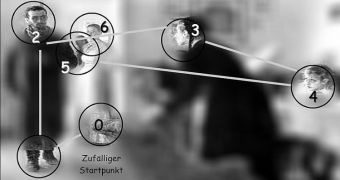A group of scientists based at the Northwestern University, in the United States, recently shed more light on the mechanisms that the brain uses to obscure a lot of information from conscious perception.
It is important to note here that the study was conducted in order to understand how the brain solves very complex issues, which we do not consciously perceive as such. A trivial example is picking up a mug and drinking its contents.
While we tend to do this automatically, the brain needs to compile a series of complex calculations in order to enable us to drink. It needs to establish the exact location of the target, our angle and speed of approach, the timing of when and how much to squeeze, and the angle at which to move the mug.
The brain handles all these calculations without involving the conscious mind directly. In addition, it makes an active effort to obscure the mechanisms employed in making the aforementioned decisions.
Details of the new study appear in a paper entitled “Visual influence on haptic torque perception,” which is published in the latest online issue of the esteemed scientific journal Perception.
“Our study gives a salient example. When you pick up an object, your brain automatically decides how to control your muscles based on what your eyes provide about the object’s shape,” Yangqing Xu says.
“When you pick up a mug by the handle with your right hand, you need to add a clockwise twist to your grip to compensate for the extra weight that you see on the left side of the mug,” she explains.
Xu holds an appointment as a PhD student in psychology at the Northwestern University, and is also the lead author of the investigation. She says that visual data processing is such a complex and powerful process that we can never hope to turn it off.
“When people see an object weighted in one direction, they actually can’t help but ‘feel’ the weight in that direction, even when they know that we’re tricking them,” the researcher goes on to explain.
This innate ability of the human brain is largely what enables us to enjoy other things, or perform other activities, while we carry out tasks that we've done a million times before. In this particular case, we can enjoy our morning coffee without constantly having to think about not spilling it.
“In the vast majority of cases, you want to ‘delegate’ decisions like this to the unconscious parts of your brain, leaving you free to focus on less straightforward problems, like following driving directions or enjoying your cup of coffee,” says Steven Franconeri.
The expert, a coauthor of the study, is an associate professor of cognitive psychology at Northwestern.

 14 DAY TRIAL //
14 DAY TRIAL //